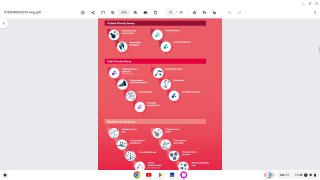$100 Million Funds Novel Oral Antifungal Therapy Development

About two years ago, the World Health Organization (WHO) published a report highlighting the first-ever list of fungal priority pathogens, which included 19 fungi representing the greatest threat to public health.
Since then, the WHO has not recommended a fungal vaccine but continues to encourage the development of innovative therapies.
To address this unmet need, F2G Ltd announced a $100 million financing round that will enable the company to complete late-stage development, seek regulatory approval, and prepare for commercialization in the U.S. of olorofim, a novel oral antifungal therapy to treat invasive aspergillosis (IA) and other invasive fungal infections.
It is anticipated that this treatment will be used to treat patients with a serious invasive, rare fungal disease for which existing treatments are inappropriate or no longer effective.
Olorofim is the first orotomide antifungal, an entirely novel class of antifungal agents. It is the only antifungal medication awarded a Breakthrough Therapy Designation for multiple indications by the U.S. Food and Drug Administration.
Olorofim has a novel mechanism of action, different from that of existing classes of antifungals. It exerts fungicidal activity by inhibiting the pyrimidine synthesis pathway.
Henry Skinner, Ph.D., Chief Executive Officer of AMR Action Fund, commented in a press release on September 12, 2024, “Fungal infections are a growing threat to patients worldwide and have a disproportionate impact on vulnerable populations, yet there has been a paucity of innovation in the field of antifungals."
"For decades, clinicians have relied on a handful of antifungal classes, with few mechanisms of action and significant limitations due to spectrum of activity, drug toxicities, or drug-drug interactions. These therapies are increasingly failing in patients."
The U.S. NIH says some fungal infections are more common in people with weakened immune systems or hospitalized individuals, while others can infect anyone, including otherwise healthy people.
As of 2023, fungal vaccine candidates were segmented into broad categories based upon their composition, ranging from multiple to single antigens: whole organism vaccines (live-attenuated or killed fungal cells), crude extracts (fractions derived from cells and medium of fungal cultures), purified subunit vaccines (proteins, peptides), and nucleic acids (RNA and DNA) encoding the antigen(s) of interest.
No fungal vaccine has been approved as of 2024.
Our Trust Standards: Medical Advisory Committee
